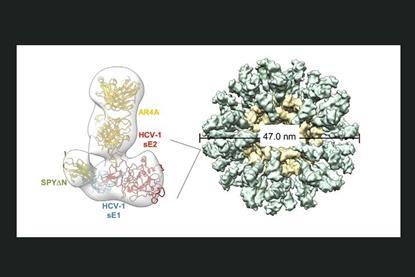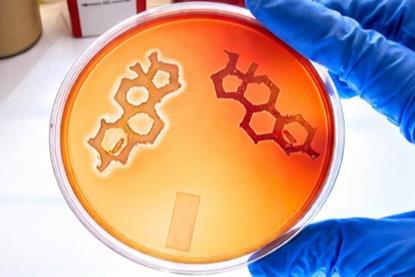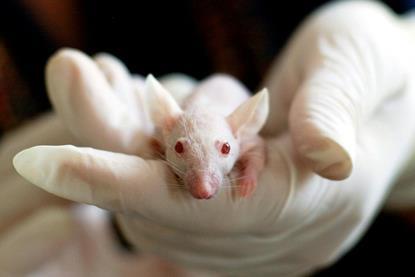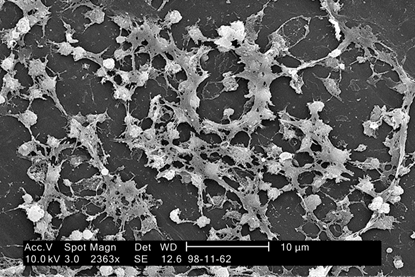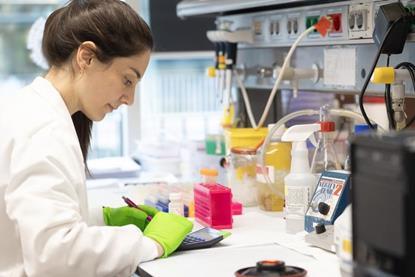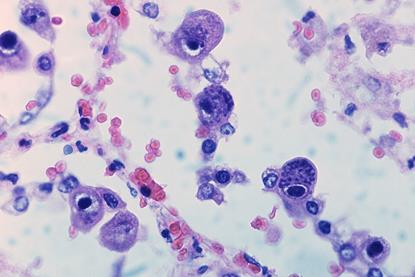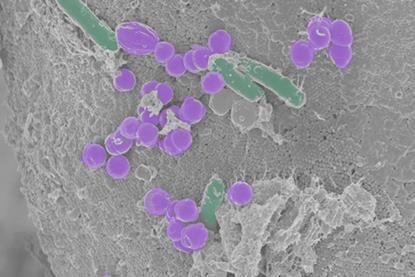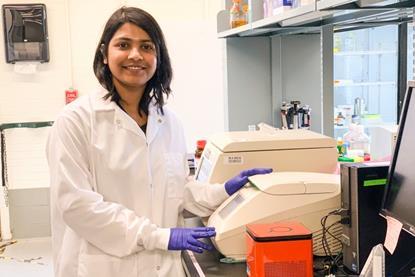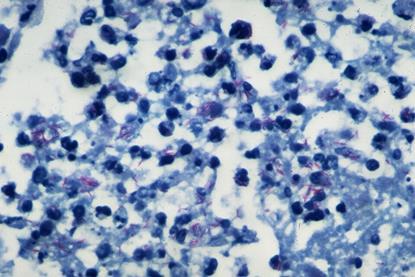One health
Communicable diseases remain one of the major causes of mortality worldwide. There are disparities in the numbers of individuals affected by disease between low-and-middle-income countries and those in developed nations. Microbes will play in important role in drug discovery: producing anticancer drugs and antimicrobials. Applying One Health principles, to understand the interaction of pathogens and the human host, development of diagnostics, treatments, and disease prevention, applied microbiologists can shape global health and wellbeing outcomes.
News
Thermo Fisher Scientific launches new color-based culture media to help detect Candida infections faster
Thermo Fisher Scientific today announced the launch of Thermo Scientific™ Brilliance™ Candida 2 Agar and Spectra™ Candida Agar, new color-based (chromogenic) culture media to help laboratories quickly detect and differentiate clinically important Candida species.
Read story- News
Bacteria found in mouth and gut may help protect against severe peanut allergic reactions
One of the big mysteries in food allergy is why two people with similar levels of peanut specific antibodies can react so differently. A new study shows for the first time how gut bacteria break down parts of an allergenic food and influence how a person reacts to peanuts.
- News
Study finds natural fungal supplement improves COVID-19 vaccine response
Researchers have found that a natural fungal supplement taken at the time of COVID-19 vaccination reduced short-term vaccine side effects and helped antibodies last longer in people who had not previously been exposed to the virus.
- News
New tool reveals the secrets of HIV-infected cells
Scientists have developed a novel tool—named HIV-seq—for profiling the features of rare HIV-infected cells from people with HIV. Using the new tool, they’ve found key differences in people’s HIV-infected cells before versus after starting antiretroviral therapy.
More One Health
News
Chemically ‘stapled’ peptides used to target difficult-to-treat cancers
Researchers have developed a new technology that uses bacteria to build, chemically stabilise, and test millions of potential drug molecules inside living cells. The bacteria produce vast libraries of peptide molecules, and chemically stabilise them into defined shapes while they are being tested inside the cell.
- News
Researchers find a gentler way to treat aggressive gum disease
Researchers have discovered that the primary bacterium driving gum disease carries an internal “genetic brake” that controls its own aggression. By locking this brake in place, future treatments could silence the pathogen while leaving beneficial bacteria untouched.
- News
Nanoparticle vaccine approach takes on a new target: Hepatitis C virus
Scientists have engineered a native-like, stabilized version of Hepatitis C virus’s E1E2 complex and used it to build a nanoparticle-based vaccine candidate. It uses a technology called self-assembling protein nanoparticles, which organizes copies of the proteins into virus-like clusters that the immune system can recognize.
- News
Diisobutyl phthalate at environmental concentration promotes conjugative transfer of antibiotic resistance genes
Researchers investigating the ecological safety risks posed by dibutyl phthalate (DBP), in aquatic environments found it significantly increased conjugative transfer frequency in both intragenus (E. coli DH5α to E. coli HB101) and intergenus (E. coli DH5α to B. subtilis WB100N) systems.
- News
Toxic algal bloom takes heavy toll on mental health
The year-long algal bloom along the South Australian coastline has not only devastated marine life and triggered health risks for humans and pets: it has also had a significant psychological impact on local residents, according to new research.
- News
Big and small dogs both impact indoor air quality - just differently
An initial study reports that dogs — both big and small — impact indoor air quality. The researchers found that small active dogs produced more airborne particles, but larger animals released more microbes into the air than people did.
- News
Testosterone increases severity of bacterial skin infections
Men are more susceptible than women to skin infections caused by Staphylococcus aureus bacteria, but the biological basis for this disparity has remained unclear. A new study is the first to reveal testosterone, present at higher levels in males, as a key driver of infection.
- News
Huge toll: Bird flu rampant among black vultures
More than four out of every five dead black vultures examined by University of Georgia researchers tested positive for highly pathogenic avian influenza, according to a new study. Their indiscriminate scavenging appears to sustain transmission of the virus beyond the typical bird flu season.
- News
Fecal transplants from older mice significantly improve ovarian function and fertility in younger mice
A new study details how fecal transplants from older female mice significantly improve ovarian function and fertility in young mice. The surprising results reveal a direct link between the microbiome of the gut and ovarian health and function.
- News
Ultrasound-activated ‘nanoagents’ kill superbugs hiding in biofilms
Scientists have designed nanoagents that act like smart drug‑delivery capsules – carrying an antibiotic deep into bacterial infection sites and releasing it only when activated by gentle ultrasound.
- News
Scientists identify therapeutic target that would curb the spread of coronaviruses
Coronaviruses not only use the machinery of the human cells they infect: they modify it to achieve optimal conditions to produce viral proteins and thus spread more quickly, according to a study identifying enzymes that modify transfer RNAs as key elements for coronavirus infection.
- News
Cell-free DNA offers early warning for bloodstream infections in kids with leukemia
Researchers show that microbial cell-free DNA sequencing can predict bloodstream infections in children with leukemia days before the symptoms appear. Plasma microbial cell-free DNA sequencing (mcfDNA-Seq) offer a potential approach to protecting vulnerable patients by allowing treatment to start before the patient gets sick.
- News
New study demonstrates universal newborn cCMV screening leads to earlier detection and increased identification of mild hearing loss
A new retrospective cohort study examining the impact of Minnesota’s first-in-the-nation mandated universal newborn screening for congenital cytomegalovirus (cCMV) shows that universal screening significantly decreased the age at first audiology visit and increased identification of mild hearing loss in infants.
- News
Akkermansia muciniphila PROBIO therapy promotes arginine biosynthesis and reverses reproductive impairments in polycystic ovary syndrome rats
A research study investigated the therapeutic potential of Akkermansia muciniphila PROBIO (AP) in a dehydroepiandrosterone-induced PCOS rat model, revealing significant improvements in reproductive and metabolic parameters through modulation of gut microbiota and enhancement of arginine biosynthesis.
- News
Enhanced inner ear tropism of Adeno-Associated Virus (AAV) vectors via peptide display on AAV1 capsid
Researchers improving efficiacy of AAV)-mediated gene therapy for the inner ear screened and inserted short peptide motifs onto the surface of the AAV1 capsid. These engineered vectors achieved markedly higher transduction rates in inner ear hair cells and supporting cells.
- News
Scientists develop new gut health measure that tracks disease
Scientists have found that healthy and diseased digestive systems behave like two distinct ecological states, driven not by individual microbes but by how entire bacterial communities compete and cooperate.
- News
Nanoplastics can interact with Salmonella to affect food safety, study shows
Researchers investigating what happens when nanoplastics (polystyrene) interact with Salmonella discovered an increased expression of virulence-related genes. The bacteria also formed thicker biofilms, which indicates they are becoming more virulent.
- News
Study reveals immune blueprint for next-generation malaria vaccine
New research has uncovered how the human immune system fights Plasmodium vivax, paving the way for the first effective vaccine against the most widespread form of malaria. It provides critical evidence of how protective immunity to P. vivax works, identifying specific targets on the parasite.
- News
Tackling tuberculosis systematically: How the environment shapes TB risk
Researchers introduce the concept of the “tuberculogenic environment”: the complex interplay of structures, rules, and living conditions that keep certain communities at high TB risk, even when care is available.






